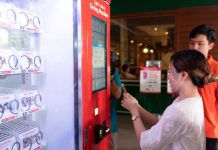
Feb. 6 (UPI) — A Wuhan, China hospital denied reports Thursday from Chinese state media and the World Health Organization that a doctor accused of “spreading rumors” about the 2019 novel coronavirus outbreak has died of the virus.
Wuhan Central Hospital, the facility treating Li Wenliang for coronavirus, disputed reports of his death.
Hospital officials told the South China Morning Post early Friday local time that Li, 34, remained in critical condition.
A few hours earlier, WHO officials, responding to reports in Chinese media and elsewhere, described Li, an ophthalmologist, as a “front-line worker who is committed to care for patients,” and that “we should celebrate his life and mourn his death with his colleagues.”
After the hospital disputed reports of Li’s death, WHO spokesman Tarik Jašarević told UPI that the organization had no information about Li’s condition.
Li, who worked at Wuhan Central when the coronavirus outbreak started in December, was accused by law enforcement officials in the city of spreading rumors about it after he warned friends about the disease on social media. His hospital, he told them, was seeing patients coming in with an “unusual” pneumonia that he compared to SARS.
Li was summoned by police on Jan. 3 and reprimanded for “spreading rumors online” and “severely disrupting social order.”
Li had to sign a statement admitting his “misdemeanor” and promising not to commit further “unlawful acts.”
It was confirmed earlier this week that he had been diagnosed with the virus after helping treat hospital patients.
Compiling data
Li’s illness comes as the WHO accuses countries affected by the 2019-nCoV outbreak of withholding information on cases and virus samples. The WHO has refused to cite countries by name, but has pointedly — and consistently — refused to criticize the Chinese government’s handling of information on the outbreak.
“We are still awaiting data from a number of countries,” said Dr. Michael Ryan, executive director of WHO’s Health Emergencies Program. However, “from our observation of the situation, China has reported data in an extremely timely fashion.”
He noted that the Chinese government had surveillance systems in place to identify “unusual pneumonia,” and that this system quickly identified 2019 nCoV and led to a rapid mobilization of health response teams to the city.
Officials at the U.S. Centers for Disease Control and Prevention have also credited the Chinese with sharing the viral genome quickly, which has enabled the development of an accurate diagnostic test and served as the starting point for research into possible vaccines and drug treatments.
Test kits
WHO officials said Thursday that 250,000 testing kits for 2019-nCoV have been distributed to member states.
The CDC also started shipping its laboratory test kit to detect 2019-nCoV on Wednesday to select qualified U.S. and international laboratories. Distribution of the tests will help improve the global capacity to detect and respond to the virus, the agency said.
The tests are being shipped through the International Reagent Resource, a CDC-established mechanism that distributes laboratory reagents.
The test kit, called the CDC 2019-nCoV Real-Time Reverse Transcriptase-PCR Diagnostic Panel, is designed for use with the RT-PCR testing instrument used to test for seasonal flu. It is intended for use with upper and lower respiratory specimens collected from people who meet CDC criteria for 2019-nCoV testing and can provide results in four hours.
“Our goal is early detection of new cases and to prevent further spread of the coronavirus,” CDC Director Robert R. Redfield said in a statement. “Distribution of these diagnostic tests to state laboratories, U.S. government partners and more broadly to the global public health community will accelerate efforts to confront this evolving global public health challenge.”
The test kit has not been cleared or approved by the Food and Drug Administration, but the FDA on Tuesday issued an Emergency Use Authorization.
Initially, about 200 test kits will be distributed to U.S. laboratories and a similar number will be distributed to select international labs. Each test kit can process 700 to 800 patient specimens.





